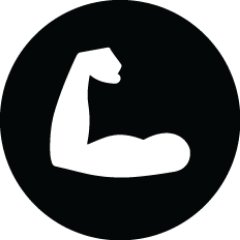
By Yolanda Lau
Today, we launched a new website for Liquid, the operating system for agile businesses. I’m so excited to share what we’ve been working on, and so proud of how far we’ve come from when we first started our consulting firm together many years ago.
With that in mind, I wanted to share some thoughts on our vision for Liquid and the future of work, how we got here, and why I believe we’re building something important.
Shifting from role-based work to project-based work
For years, I had seen my friends — fellow MIT alums — leaving their careers behind because they couldn’t find a way to make work fit into their lives. Whether it was making more time for their children or parents (or not wanting to be tied to a job and an office), highly educated women were leaving the workforce in droves. I had long found project-based work to be a means of finding work-life fit and I wanted to build a way to make it easier for anyone to do project-based work. And as a long-time consultant, I had seen for myself how tapping into on-demand talent enable businesses to scale quickly and efficiently. I realized project-based work was a win-win for all parties involved.
Project-based work and the future of work
I’ve been a big proponent of project-based work as a critical component of the future of work. Project-based work allows small business owners, entrepreneurs, creators, and enterprises to grow and scale their businesses while also expanding opportunities to bring in diverse talent. Working with on-demand talent is a good business decision for agile businesses. On the talent side, project-based work is a means to find work-life fit, particularly for lifelong learners eager to strengthen and develop their capabilities.
Starting FlexTeam

It was with that goal in mind that I co-founded FlexTeam — we wanted to build a world where previously sidelined professionals could engage in challenging, meaningful work when it fit into their lives. In addition, we envisioned a world where anyone could build an agile business, bringing on just-in-time talent to complete only the specific work that needed to be done.
Building FlexTeam’s platform
As we built FlexTeam, we initially used half a dozen different platforms to get signatures, manage contracts, agree to scopes of work, make payments, etc. We realized a tech platform was needed to manage this. Bringing on a CTO, we built an operating system for our modern consulting firm. Our proprietary platform allowed us to vet, onboard, manage, and pay FlexTeam’s consultants, while also enabling our clients to approve scopes of work, communicate with our team, and make payments.
Going Liquid

FlexTeam grew to over 700+ independent contractors working on strategy projects with hundreds of clients, from SMBs to Fortune 500 companies. But we realized that to accelerate our vision for the future — to help more businesses Go Liquid — we needed to reduce the friction for every business to work with on-demand talent.
We saw several main trends: workforce was becoming more flexible and global and agile companies succeed by tapping into the best non full-time workers. But working with on-demand talent can be really difficult because it’s not a regular recurring expense like payroll — and there are additional compliance issues and challenges with controlling costs / work.
So we created and spun out Liquid — joined Techstars LA, and raised venture capital. Today, the Liquid platform streamlines the way a business’ finance, operations and talent management teams work with its vendor and supplier networks in the U.S. and abroad. We simplify contracting and global payments while ensuring financial controls and compliance.
The Future of Work
It’s widely accepted that COVID-19 has accelerated the shift to the future of work. In 2020 alone, wages and workforce participation of independent workers rose by 33%. In 2021, we’ve seen the “ Great Resignation” / “ Big Quit” — which has led to further growth in the percentage of independent workers — and businesses becoming more comfortable with remote work, asynchronous work, hybrid work, and project-based work.
While others talk about the future of work being remote, I believe it’s much bigger than that. The future of work is about everyone and every business working together in a way that works for all parties involved. It’s a distributed hybrid world where some folks will remain employees, but more and more people will become independent contractors — some working through agencies, and others working directly with companies (with some growing to build their own agency and hiring their own subcontractors). The companies that thrive in the future of work are those that Go Liquid, embracing on-demand talent and virtual talent benches.
Liquid and the Future of Work
At Liquid, we are building the operating system for agile businesses to enable everyone and every business to succeed in the future of work — project-centric contracting, work orders, purchase orders, and payments for agile businesses and their global vendor networks. In addition, our platform allows businesses to quickly understand and control their variable non-employee costs. We want to help every company Go Liquid, and we want to make it easier for people to Go Liquid.
Every day, I wake up excited to build Liquid because I know we are changing how work gets done; we are building the future of work. I love our hectic startup life (for example, I previously led Marketing for Liquid on an interim basis) but I primarily spend my days leading Customer Experience and Customer Success at Liquid. With a consulting background and experience as a trusted advisor, I’m thrilled to be building this critical (and growing) department. I love partnering with startup founders, finance leaders, HR leaders, COOs, Chiefs of Staff, and other operations leaders to help them scale their businesses while saving them (and their teams) time and money. It’s been a joy to connect with our customers and ensure they are getting exactly what they need from our platform. I’ve seen our customers take their businesses from idea to Series A and from seed to Series B — and I love knowing that our platform has supported their rapid agile growth.
Today, hundreds of businesses spanning marketing agencies, startups, production companies, social enterprises, and SMBs are using our platform. These businesses use Liquid to contract, onboard, manage, and pay their on-demand talent and vendors in the U.S. and in 175+ countries across the globe. Thousands more are #GoingLiquid and engaging the liquid workforce in ever growing numbers. In just the last year, Liquid has securely processed millions of dollars in global payments. Our customers love our platform, rave about our helpful customer support team, and rely on Liquid on a daily basis. Liquid is becoming the operating system for agile businesses.
And we’re just getting started.
If you’re as excited as I am about what we’re building and our vision for the future, read more from our CEO. Then, visit our new website (www.goliquid.io) to learn more about Going Liquid or subscribe to our newsletter to follow our journey.
Are you ready to Go Liquid?
Interested in the Future of Work? Join the Work of the Future #FutureOfWork Facebook Group.

Yolanda Lau is an experienced entrepreneurship consultant, advisor, and Forbes Contributor. She is also an educator, speaker, writer, and non-profit fundraiser.
Since 2010, she has been focused on preparing knowledge workers, educators, and students for the future of work.
Learn more about Yolanda here.

FlexTeam is a mission-based micro-consulting firm, co-founded by Yolanda Lau in 2015, that matches talented mid-career women with meaningful, challenging, temporally flexible, remote project-based work opportunities. FlexTeam’s clients are businesses of all sizes across all industries and sectors. FlexTeam’s most requested projects are competitor / market research, financial models, and investor decks. FlexTeam is also the team behind Liquid.



